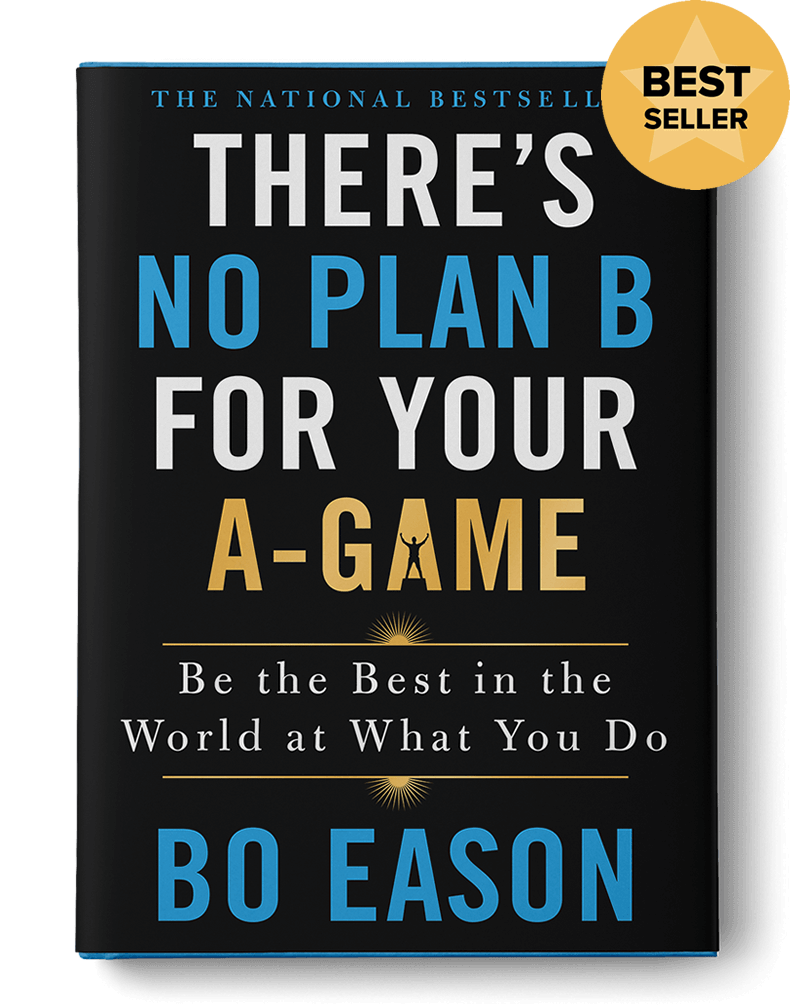I was honored to have world class sprinters Leroy Dixon and Tyson Gay join me at my last Personal Story Power Event. They're making the same transition I did many years ago. They're at the end of their athletic career and now what? They came to the event because they're learning how to take what made them great in track and apply it to their next phase. That all starts with being able to express who you are and what you are building.
This conversation is really cool because we talk through the experience of running in one of their biggest races, the 2007 World Championships in Osaka, Japan. Make sure to check out the video and watch the race. Our conversation follows it.
———————————————————————————————
Bo: I love watching that race — that kind of speed mixed with the patriotism — I just love it. So what’s it like as you’re arriving to the stadium for an event like that? What’s going through your head? Who are you talking to? What are you listening to?
Leroy Dixon: For me, it starts back at the hotel. I’ll play songs that remind me of my dad, when he and I would sit on top of the car and talk about life. The songs remind me of someone believing in me. On the way over, I’m in my zone by then. Whoever I’m looking at or listening to, whatever they’re saying is just bouncing off. I’m so in that zone of belief that nothing can get in.
Tyson Gay: I’ll watch a funny movie to keep my mind off the race. If I don’t I’ll be in the hallway doing drills and thinking about the race — too much. You do want to think about it but not too much. So I like to relax. But once I get on the bus, that’s when it kicks in for me. That’s when the nerves kick in, when I can see the stadium from the bus.
Bo: How many people were in that stadium that night?
Tyson: Probably 70,000. It’s crazy. When you hear them cheer you on, if you have family there, you can hear them and find them, even if you don’t know exactly where they are sitting. It’s amazing.
Bo: As you got off the bus and entered the stadium, were you guys talking to one another?
Tyson: When you’re getting ready for the 4×100, that’s the fun event, the most exciting. We practice what we say to one another during the race.
Leroy: Once you get off the bus, you go to whoever you naturally gravitate toward, like your coach or your agent. Everyone is scared so you gravitate toward whoever you feel safe with; the safety helps ground you. In that moment, I’m thinking, “What am I doing? What am I thinking? What did I choose? I could just be at home watching this on TV.” I want to get back on the bus and leave. At that moment, that’s when everything I’ve done feels like a mistake. So naturally you just find somebody who reminds you that it’s okay.
When we were walking into the stadium, I was feeling like I didn’t know what was going to happen. Then I saw Tyson and he goes, “You alright?” And I didn’t saying anything. Then he goes, “Are you nervous?” And I said, “I’m nervous.” “He goes, “I’m nervous too.”
Bo: I’m laughing because people just assume that Olympic athletes or professional athletes don’t get nervous. This is just their job.
Leroy: Not only that, he had just won two gold medals before that race. So I was like, “You’re nervous? You just won two gold medals.”
Bo: And you were the rookie, right?
Leroy: Yeah and I’m looking at him like, “He’s not nervous. He just won two gold medals.” It’s crazy. Everyone is watching us thinking we’re so confident because we’ve prepared our whole lives for this; and, yeah, I have prepared my whole life for this but I’m still a human being. I still feel things.
Bo: So, Tyson, you ran the third leg and, Leroy, you ran anchor. What was the exchange like?
Tyson: I didn’t get a clean exchange with the baton (from the previous runner). I missed the target and hit his chest. I was nervous because we fumbled it. But I tried to stay relaxed. I remembered from the preliminary race, which we lost, that Leroy had gotten passed up. So I had to make sure to get him the stick and I gave him a little push from the back.
Bo: How about you, Leroy?
Leroy: I’m seeing Tyson flying around the curb. As soon as I took off, I didn’t feel my body. I was just waiting to feel the stick. As soon as I felt the stick, I took one step and then I felt the push and was like, “I’m about to fall. If I fall, my mom and dad are watching; everyone is watching. I just got passed up in the prelims.” I felt myself stumbling but then I gathered myself and started running for dear life.
Bo: And you took off.
Leroy: At that point, my body was doing everything, not me. My body was just naturally moving.
Bo: What was it like once he crossed the finish line, Tyson? Were you running up behind him as he was running?
Tyson: Man, I was and saying, “Go! Go!” Because I remembered the prelim when the world record holder was chasing him down and that’s what he was doing in the final but he couldn’t catch him.
Bo: That’s such a big moment for America and for track and field all around the world. I just love talking to people like you because I totally relate that whatever you’re the best in the world at, in this case, athletics, it totally translates to other occupations. You guys are learning that now. You take that same excellence and bring it to the next phase of your life. You’re so young when you retire from sports. You have this whole different life, but you apply those same principles.
You need to know that when you reach the top and finish with one part of your life, you can certainly reach it in another place too by just applying the same principles.

